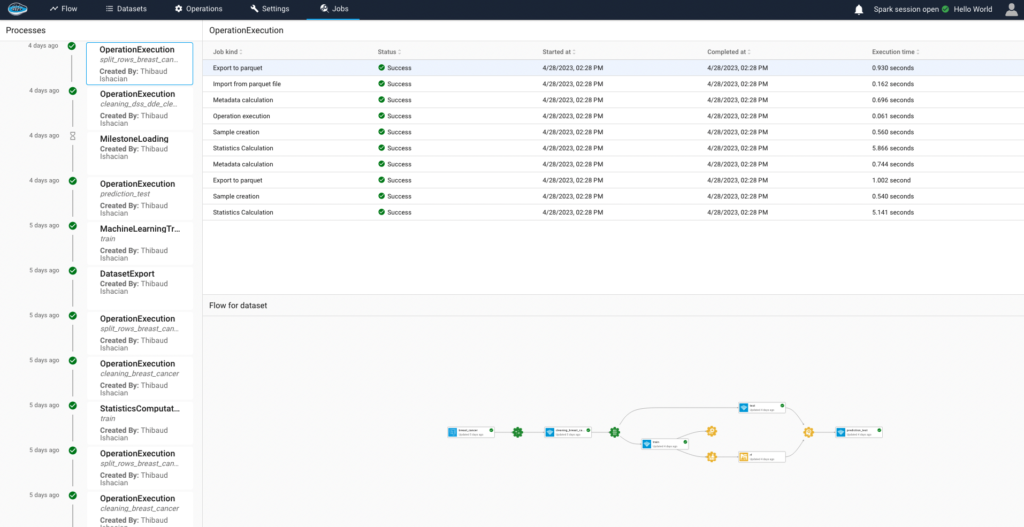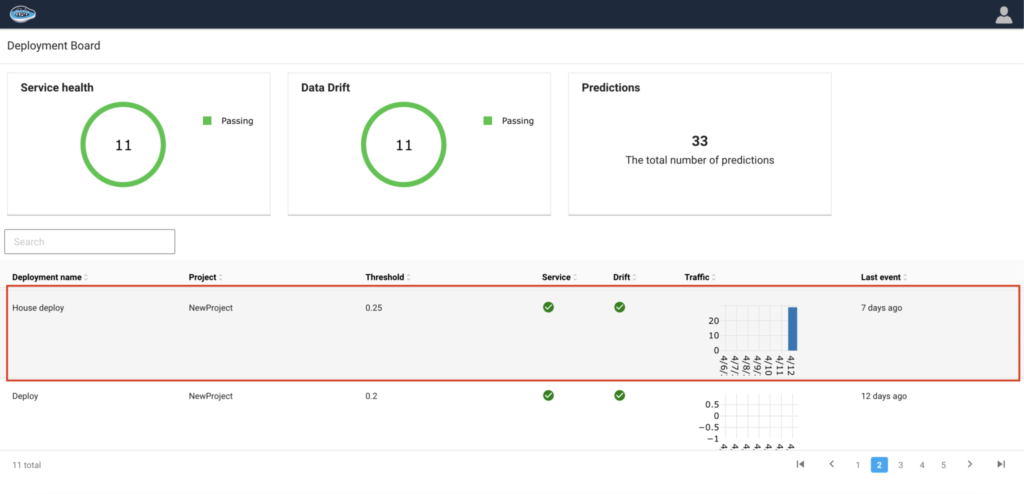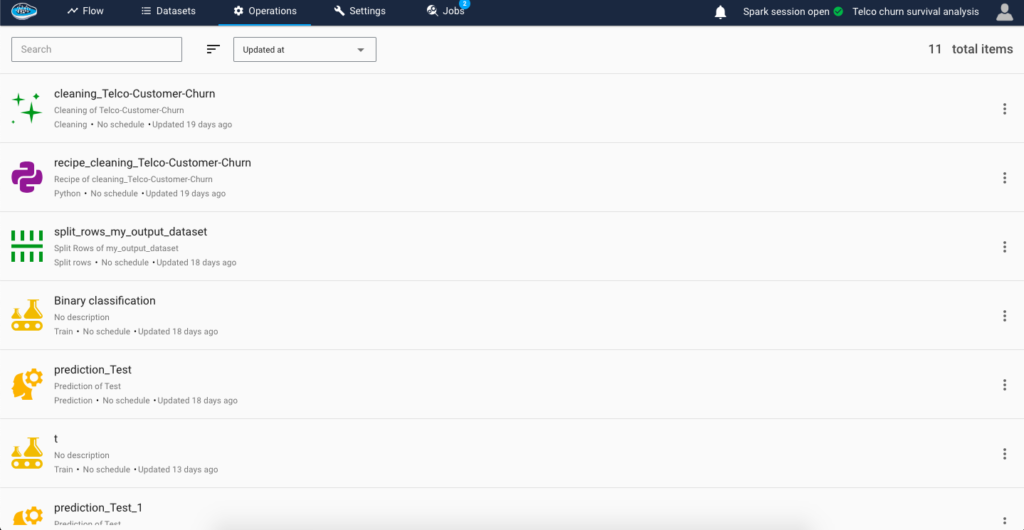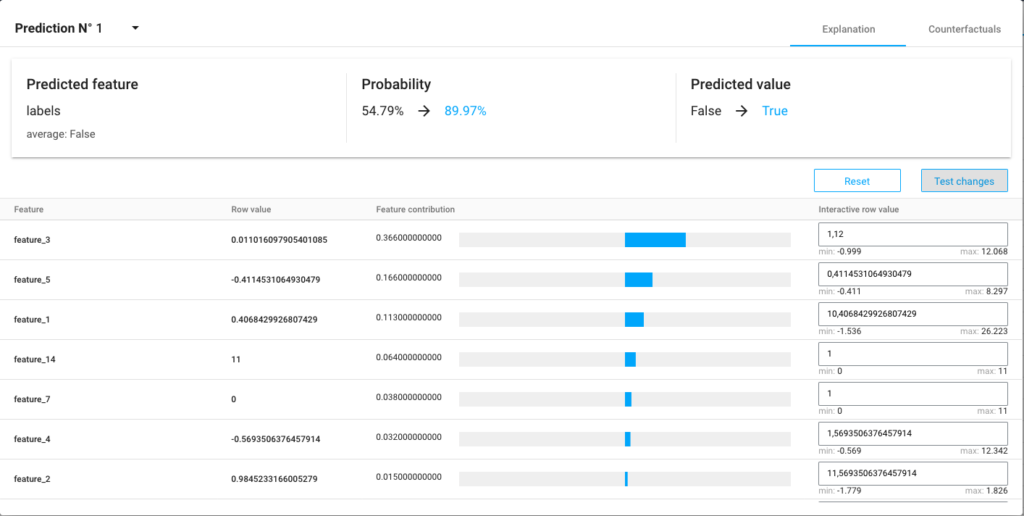How to Orchestrate AI Deployment in Defense Infrastructures? The need...
Read MoreThe retail industry has seen a significant upheaval as a result of artificial intelligence (AI). Retailers who wish to stay competitive in today’s market must use AI technology.
AI systems have the capacity to evaluate enormous amounts of consumer data and provide businesses with priceless insights. Businesses may use this information to improve customer satisfaction, adjust product offers, and increase operational efficiency. According to the latest studies, 85% of retail executives believe AI will be essential to their business success in the next five years. (IBM)
Find out how papAI can improve the deployment of AI projects in the Retail sector here.

In this article, we’ll explore how to integrate AI into real business needs and improve its adoption by all stakeholders.
AI's Expanding Role in Retail
Due to its remarkable growth trajectory, the global artificial intelligence market in the retail sector is anticipated to reach an incredible value of US$10.76 billion in 2023. The swift ascent indicates the retail industry’s continuous commitment to incorporating AI technology to enhance customer experiences, optimize operations, and sustain competitiveness in a dynamic marketplace.
The long-term outlook is even more promising: projections show that the use of artificial intelligence in the retail sector will exceed an incredible US$127.09 billion by 2033. As evidenced by a tenfold increase in the space of a decade, the sector sees AI as a revolutionary force capable of transforming the way retail organizations operate, from supply chain management to personalized customer interactions.
AI for Retail: A Comprehensive Guide to Choosing the Best Solution for Your Business Needs
When choosing an AI solution, consider factors such as integration with existing systems, data privacy and security, compatibility with your business needs, and scalability. By carefully evaluating these factors, you can choose an AI solution that will help your retail business thrive in an ever-changing market.

How Retail Companies Can Adopt AI Effectively
In this section, we will define an efficient path to follow to optimize time and resources in the adoption of AI.
1- Evaluate Your Present Situation
In advance of starting the implementation of AI in retail, it is essential to do a thorough assessment of your existing situation. This first phase is a comprehensive assessment of your current technological stack, data infrastructure, and operations. Take into account the following factors to prepare the environment for successful AI integration:
Current IT Infrastructure: Evaluate the hardware, software, and network capabilities of your technology infrastructure. Make sure AI solutions are compatible with your current IT setup. To properly integrate AI systems, you might need to replace some hardware or software components.
Workflows and Business Processes: Evaluate the workflows and business processes you now use. Recognize how various teams and departments function inside your company. It’s critical to pinpoint inefficiencies, bottlenecks, and places where AI might be useful.
Data governance and compliance are essential, particularly in the retail industry where highly sensitive consumer data is involved. Make sure that your data management procedures comply with applicable laws and industry norms. To ensure data security and integrity, update data processing protocols as needed.
Staff Competency: Assess your staff’s level of expertise using AI technology. Determine whether recruiting or training is necessary to fill skill shortages and support AI ambitions.
2- Define Your Strategy and Objectives
Your AI projects will be driven by the goals you set, therefore it’s critical that they be clear and consistent with your corporate objectives. When you are defining your goals, keep the following points in mind:
KPIs, or key performance indicators: Establish precise KPIs to gauge the effectiveness of your AI implementation. KPIs might be measures of cost reduction, client retention, sales growth, or any other pertinent retail-specific benchmarks.
Focus on the Customer: Think about how AI can improve the experience for customers. Higher customer satisfaction and loyalty can result from achieving goals linked to customization, recommendation systems, and customer journey optimization.
Operational Improvements: Assess your retail procedures to see if there are any particular operational difficulties. Goals might include using AI-driven solutions to minimize product returns, optimize supply chains, and reduce stockouts.
3- Determine which Data need to be Examined
A key factor in the success of AI deployment is the gathering and evaluation of enormous volumes of data. In this phase, data from diverse sources, both structured and unstructured, are methodically gathered and carefully analyzed.
Data Types: Determine the many data sources that are used in your retail business. Point-of-sale systems, customer databases, e-commerce platforms, social media, Internet of Things (IoT) gadgets, and more might be included in this list. It’s critical to comprehend where your data came from.
Data Quality and Cleansing: Put data quality procedures into place to guarantee data dependability and correctness. Inconsistencies and mistakes are reduced with the aid of data cleansing and normalization, which lays a strong basis for AI-driven insights.
Data Safety and Privacy: It’s critical to have strong data security measures in place since consumer data is sensitive. Regulations pertaining to data privacy must be properly followed. It is crucial to have access restrictions, encrypt data, and comply with the GDPR and other applicable regulations.
4- Selecte the Appropriate AI Solutions
AI projects are complex and involve many steps: from data collection to predictive analysis. Several tools seem to be necessary to exploit the potential of data: an ETL, a visualization tool, AI and machine learning algorithms, an interpretation or BI solution, etc.
Yet solutions exist to simplify and desecrate AI processes. papAI, Datategy’s AI platform, is one of them. Let’s take a closer look at its benefits.
Effective Tools for Data Management
papAI is a platform that provides organizations with strong data management solutions to effectively store, handle, and analyze large volumes of data. Its ability to comprehend natural language allows data scientists to interpret unstructured data, including text, pictures, and videos. This is one of its primary characteristics.
In addition to measuring action performance, papAI shows real-time execution times for queries, scripts, machine-learning models, and forecasts. The tool offers the ability to stop or force the processing chain’s further stages in response to abnormalities or circumstances. Additionally, it enables users to evaluate changes without impacting production, mutualize a sub-chain of treatments to many processing chains, and utilize machine learning to recommend or automate operations to expedite data preparation.

MLops as a Service
MLops is transformed by the papAI solution since it offers a full-service solution. We manage all aspects of MLops, including automatic re-training, performance monitoring, and model deployment. Ensuring that models consistently generate trustworthy projections is our goal.
Our distinctive quality is our proactive performance monitoring. In the event that the model performs below a certain threshold, we immediately inform the user. But we don’t stop there.
Users may easily add a new service to the papAI cluster, enhancing the solution’s usefulness and potential. The solution’s dynamic scalability allows it to grow to accommodate the user’s requests.

Driving Automated Spark Task Management
When utilizing our papAI service, all tasks generated by users utilizing no-code procedures automatically generate Spark tasks. These procedures are meticulously synchronized on our integrated Spark cluster to deliver optimal load balancing and efficient resource utilization.
Our solution takes care of maintaining the underlying infrastructure so you can focus on your business without worrying about scalability. The Spark cluster’s self-managed architecture allows it to grow organically in response to workload demands, providing it with the processing power needed to complete even the most challenging tasks.
Moreover, our solution is built on top of Kubernetes, a powerful container orchestration engine. Thanks to Kubernetes, we can efficiently manage and automate the deployment, scaling, and monitoring of Spark activity.

Interpretability and Explainability
Programs using AI and machine learning must have explainability, particularly in industries where the decisions made by these systems might have a significant influence, such as healthcare and finance. papAI Solution is aware of this and offers a variety of explainability features to assist teams in comprehending the inner workings of their models and decision-making processes. Our latest study shows that over 80% of complex decisions are clear thanks to papAI.
How Explainable One such tool that provides an easy-to-understand summary of the main factors impacting a model’s decisions is the dashboard. The comprehensive explanations provided by the dashboard about the impact of each aspect on a forecast enable teams to understand the rationale behind the model’s decision-making process.

5- Implement ,Train and Monitor your AI's Models
The implementation and training stage is crucial. This is the stage where you’ll see whether you’ve made the decision written above or not. We can summarise the process as follows:
Integration and customization: After the tools have been determined, customization is crucial. Customize these solutions to your own business needs. Make sure that your current systems—such as your CRM and Point of Sale (POS) software—integrate seamlessly with one another.
Data Migration and Cleaning: In retail AI, data is the foundation. Transfer pertinent data to the new systems at this step, and thoroughly clean the data to get rid of any inconsistencies or errors.
Testing & Quality Assurance: Evaluate the AI solutions thoroughly to find and fix any errors, malfunctions, or performance gaps. To guarantee that the AI system functions properly, quality assurance is essential.
Strong security measures should be put in place to guard against cyberattacks on your AI systems and sensitive client data. This covers regular security assessments, access limitations, and data encryption.
Machine Learning Models: Check the accuracy and relevance of your machine learning models and algorithms. Examine updated models or modifications to current models for improved predictive power.
To Increase AI Adoption in Your Company, Use papAI to Create Your Own AI-Based Tool
To sum up, papAI Solution is a potent AI and data science platform with a variety of tools and features made especially to enhance teamwork. Thanks to its project management tools, data sharing and collaboration tools, and communication and collaboration tools, which reduce the likelihood of conflicts, errors, and missed deadlines, teams can collaborate more successfully.
papAI Solution is the solution if you’re looking to improve collaboration in AI and data science projects. papAI Solution may improve teamwork and productivity by providing strong collaboration features including project management, data sharing, real-time collaboration, and explainability for anyone.
Reserve your demo now, and our team of experts will help you create a customized AI solution that best suits the needs of your business.
Interested in discovering papAI
Our team of AI experts will be happy to answer any questions you may have
How AI-Powered Anti-Drone Solutions Transform Defense Operations?
How AI-Powered Anti-Drone Solutions Transform Defense Operations? Drones are everywhere...
Read MoreTransform Defense Logs & Rapport into Situational Awareness with AI
Transform Defense Logs & Rapport into Situational Awareness with AI...
Read MoreWhy AIOps Is Key to Cyber Threat Detection in Defense?
Why AIOps Is Key to Cyber Threat Detection in Defense?...
Read More


